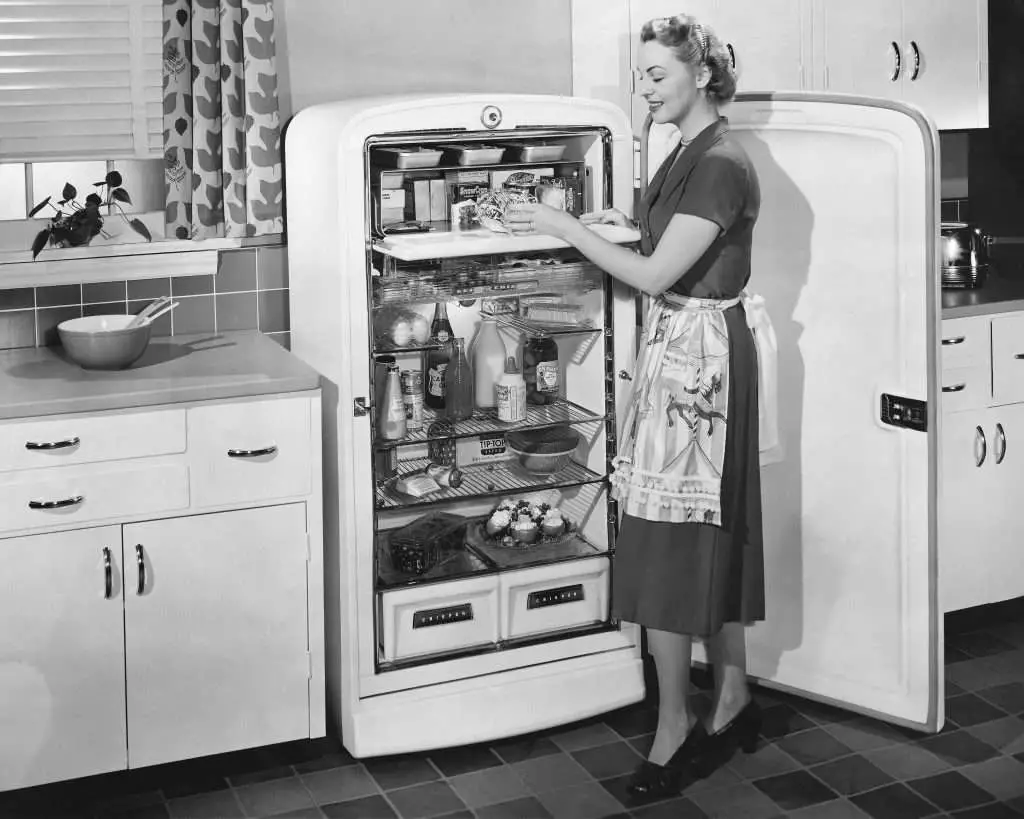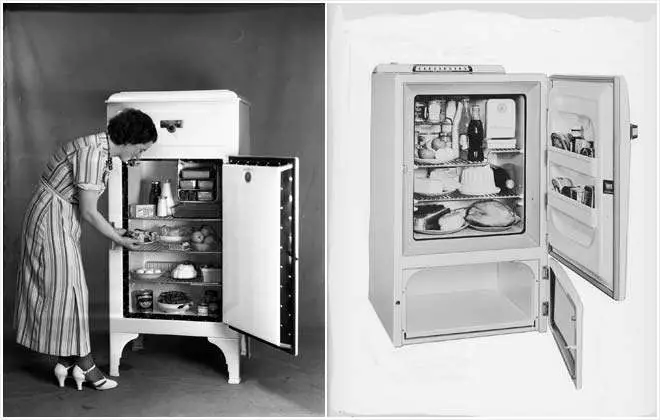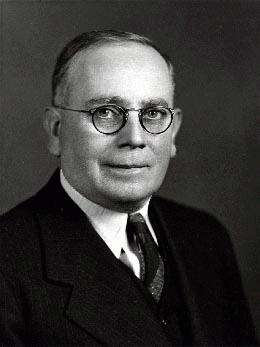Table of Contents
Embarking on the fascinating evolution of refrigeration unveils a captivating narrative, transcending the boundaries of technological progress to reshape the very essence of our approach to food storage and preservation. In 1913, a pioneering figure emerged in the form of Fred W. Wolf, marking a monumental shift with the inception of the first electric refrigerators. This article takes a deep dive into this historical milestone, tracing the transformative journey from conventional ice boxes to the revolutionary electric marvels that forever altered the landscape of domestic kitchens.
Read More >> Macy’s Chronicles: Unveiling the 1940s Shipping Marvel in the Heart of New York
As the world stepped into the 20th century, the advent of Fred W. Wolf’s visionary breakthrough in refrigeration set in motion a seismic shift. The introduction of the first electric refrigerators not only signaled a departure from the conventional ice boxes but also laid the bedrock for a more sophisticated, convenient, and efficient approach to the preservation of perishables. This pioneering leap wasn’t merely an innovation; it was a paradigm shift in how society interacted with food storage technology.
The Birth of Electric Refrigeration

Fred W. Wolf’s electric refrigerators transcended mere functionality; they were a testament to innovative design thinking. Some models ingeniously mounted on top of existing ice boxes showcased a seamless integration of the old and the new. This strategic adaptation wasn’t just a technological evolution; it offered households a foresightful glimpse into the future of refrigeration technology, soon becoming an integral part of modern kitchens. The marriage of functionality and design in Wolf’s inventions marked a pivotal moment in the evolution of domestic appliances.
Mounting Progress on Ice Boxes

The integration of electric refrigerators into homes triggered a revolutionary transformation in daily life. Liberated from the constraints of ice deliveries, households gained newfound autonomy in food storage practices. This newfound convenience not only elevated freshness standards but also instigated a paradigm shift in grocery shopping habits. The efficiency of electric refrigerators laid the groundwork for a more streamlined and sustainable approach to managing household food supplies, fundamentally altering the dynamics of kitchen operations.
Transforming Kitchen Dynamics

1913 stands as an indelible marker in the annals of refrigeration history. Fred W. Wolf’s visionary contributions transcended the mere invention of electric refrigerators; they reshaped the very essence of domestic kitchens. The legacy of Wolf’s work paved the way for a more modern and streamlined approach to preserving perishables, leaving an enduring imprint on the way we navigate the intersection of technology and daily life.
Fred W. Wolf’s Legacy

As we delicately place dishes of food into our refrigerators today, it’s incumbent upon us to reflect on the transformative journey initiated by Fred W. Wolf in 1913. The legacy of these early inventions reverberates through the corridors of time, continuing to shape the way we live. It serves as a poignant reminder of the profound impact that innovation can have on the seemingly mundane yet essential aspects of our everyday lives. Wolf’s legacy is not just a historical footnote; it’s a testament to the enduring influence of visionary pioneers on the fabric of our modern existence.
Additional Information:
Delving further into the historical context, the evolution of refrigeration was not solely driven by technological advancements but also shaped by societal needs. The shift from ice boxes to electric refrigerators mirrored a broader transition in the early 20th century, where urbanization and changing lifestyles necessitated more efficient and reliable methods of food preservation.
Fred W. Wolf‘s contributions were not confined to the realm of refrigeration; they mirrored a broader trend of innovation that defined the early 20th century. The seamless integration of electric refrigerators on top of existing ice boxes was not only a functional innovation but also a symbolic representation of a society on the cusp of embracing the modern age.
The impact of electric refrigerators on daily life extended beyond convenience. It played a pivotal role in altering dietary habits, enabling households to diversify their food choices and reduce dependency on seasonal availability. This not only enhanced nutrition but also contributed to the overall well-being of communities.
The significance of 1913 goes beyond the introduction of electric refrigerators; it encapsulates an era where technological breakthroughs were reshaping the very fabric of society. The legacy of Fred W. Wolf extends to a broader narrative of progress, where pioneers laid the foundation for a future characterized by innovation, convenience, and a redefined standard of living.
In conclusion, as we marvel at the sleek and efficient refrigerators of today, it’s crucial to recognize that they stand on the shoulders of giants like Fred W. Wolf. His legacy is not just a historical footnote but a testament to the enduring impact of individuals who dared to envision a future where innovation transforms the ordinary into the extraordinary. The journey from ice boxes to electric marvels is not just a technological evolution; it’s a compelling story of human ingenuity, societal progress, and the relentless pursuit of a better, more convenient way of life.
Timeless Tales: A Mother, a Son, and the Enduring Legacy of a 1965 Renault 16

